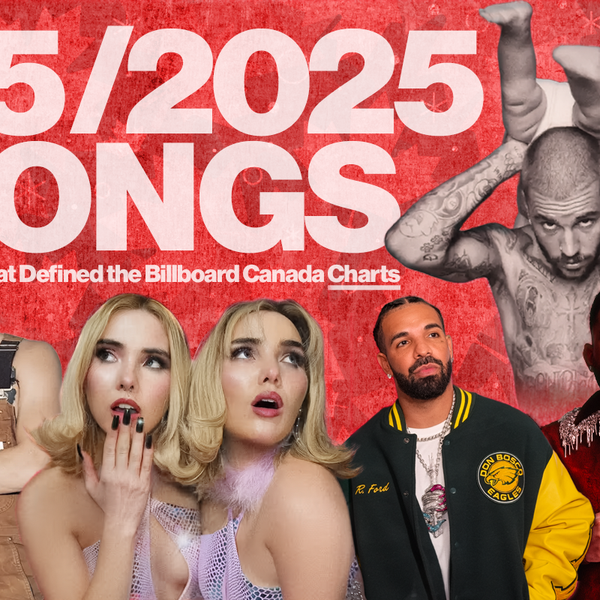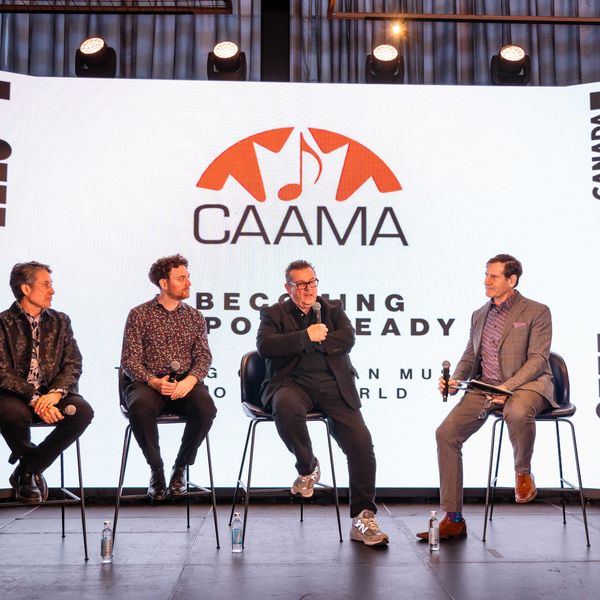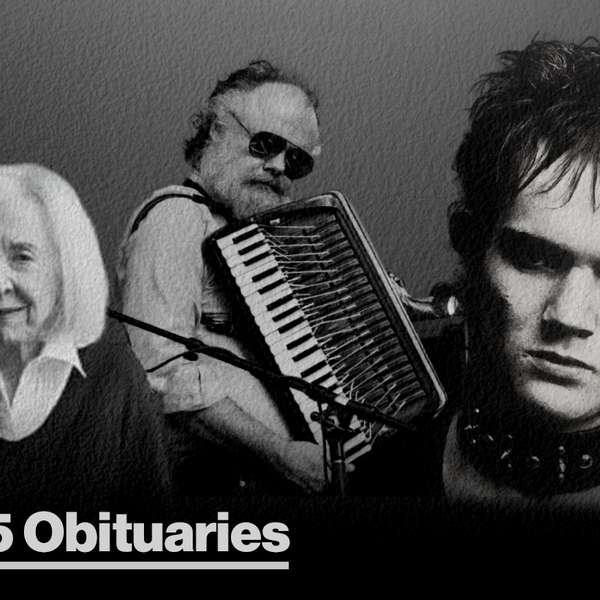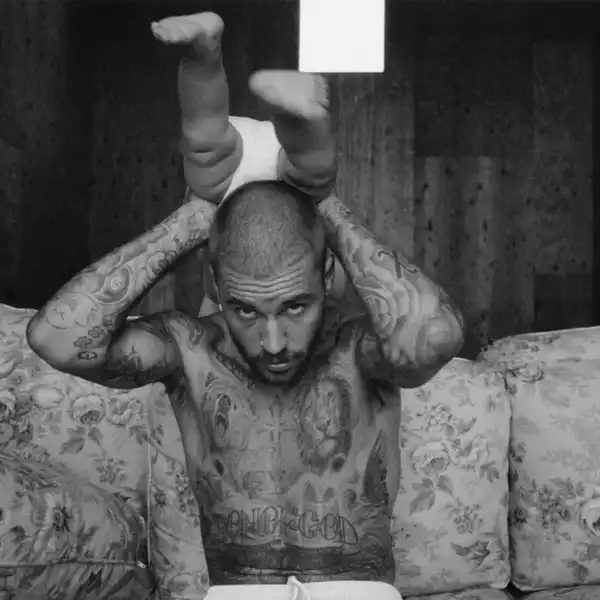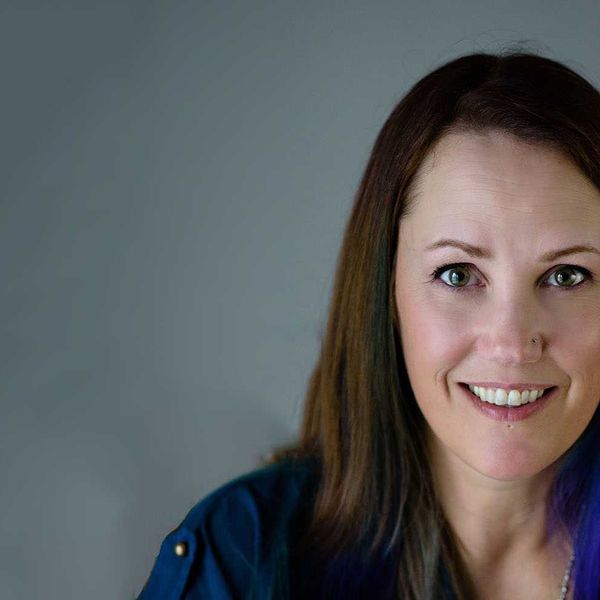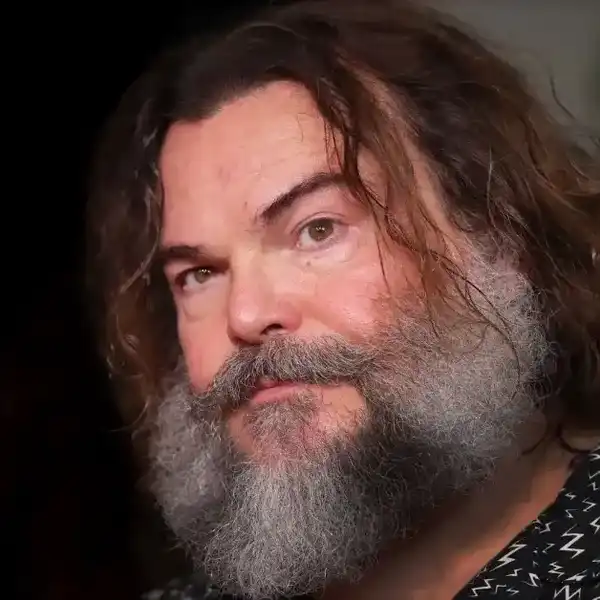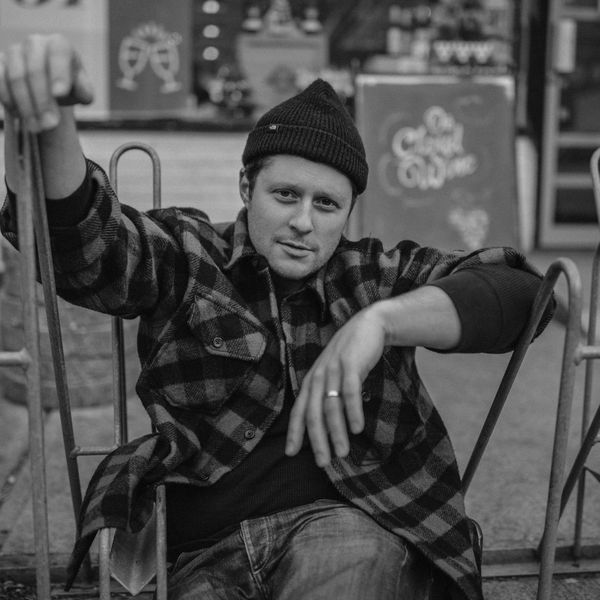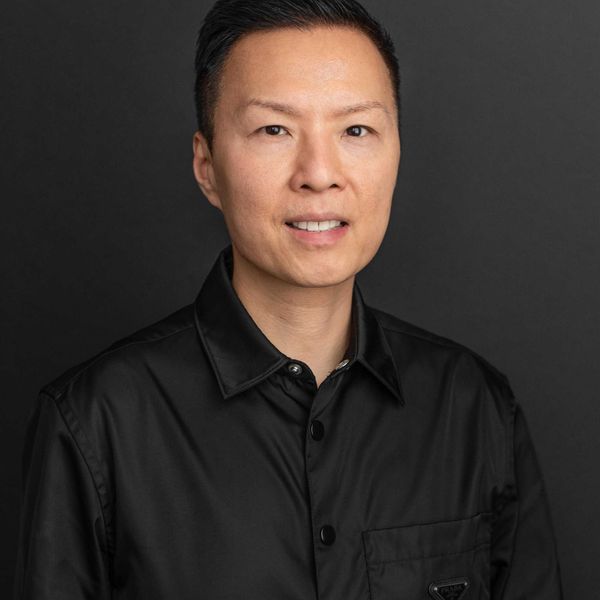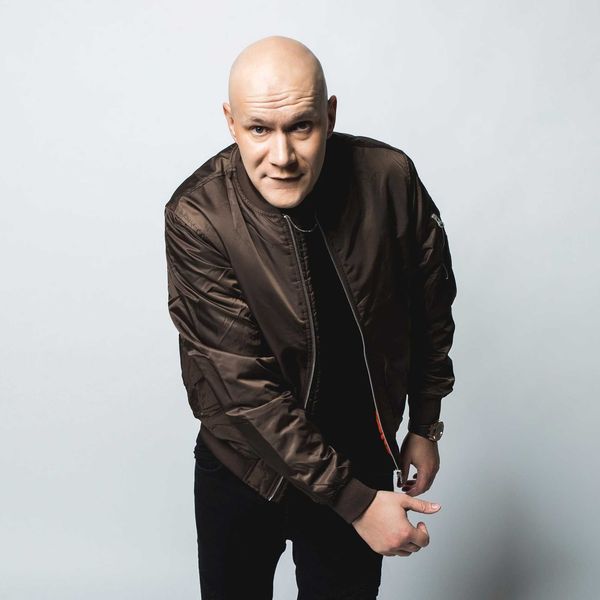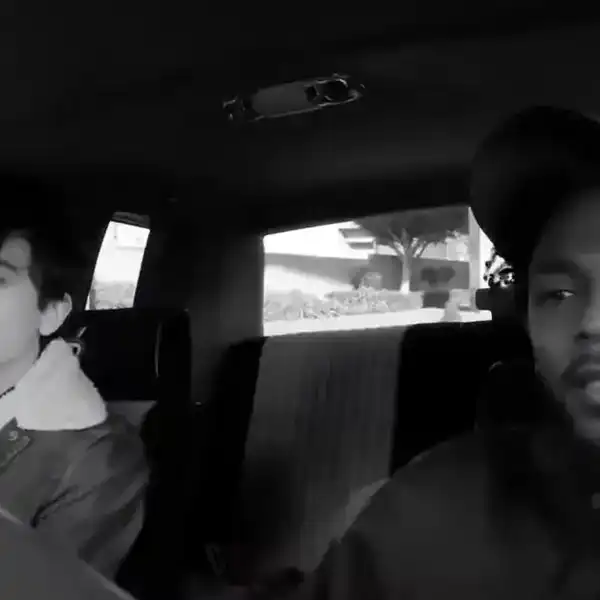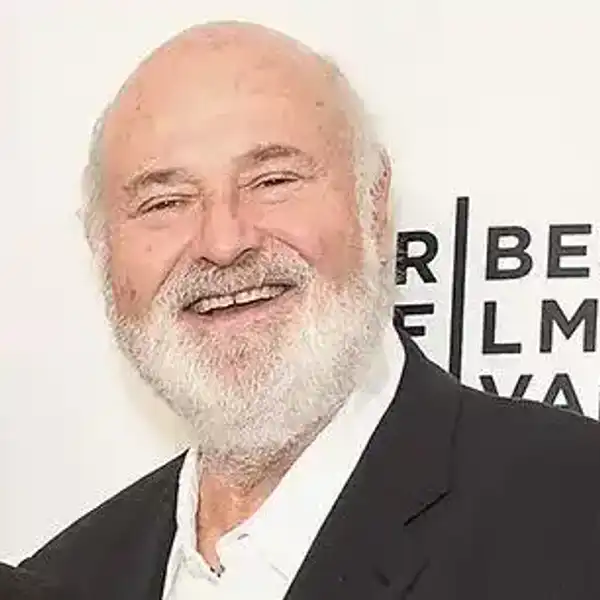A Conversation With .. Gerry Miskolczi, Canadian Records and Artists Appreciation Society
Thanks to the determined efforts of its founder, the Society's Facebook page has 4,600 members who are passionate about Canadian music. The former record store owner explains his devotion to the cause.
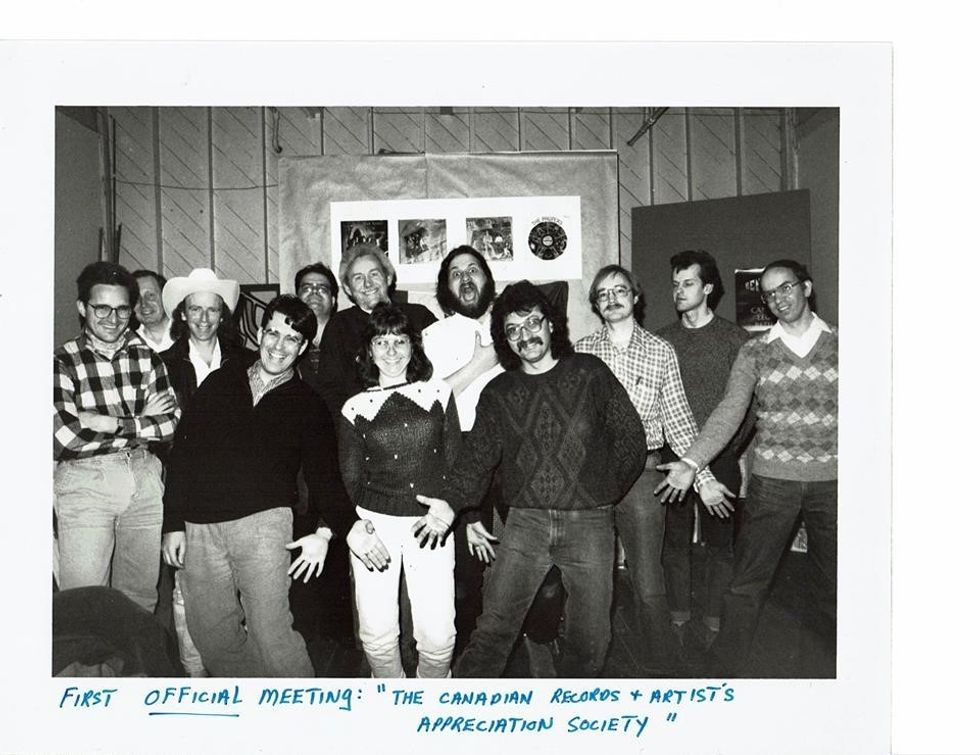
By Bill King
You can hold people’s attention an average of 8.5 seconds, so say the marketing gurus of Facebook, now in year fourteen. Recently, I was scrolling down my homepage and examining the number of dedicated pages I’d liked through the years, and it became apparent a good ninety-five per cent had gone dead. No visitors, comments, postings or interaction of any consequence.
How artists and musicians see Facebook has radically changed the past three years. Gone are the constant gig postings, the hard sell, the grovelling for “go fund me” recognition. What seemed to be an easy route to reach and build and market to an audience of devoted followers has become far more sophisticated and aware - leery of hucksters and “hit and runners”. It’s the big conversation folks care about: news of the day – music, art, politics, family; life in motion, which brings me to the Canadian Records and Artists Appreciation Society Facebook page with 4,600 dedicated and passionate members.
I’ve watched major jazz pages with ten times the membership rot on the vine. Blues sites sit for days with few postings or responses, but when it comes to the Canadian Records and Artists Appreciation Society, visitations are daily - postings of memorabilia, recollections of bands, performances, trivia, photographs and dialogue – always robust and interesting. I spoke with the man behind the site and history behind the society which predates the Facebook page some 30 years – Gerry Miskolczi.
Bill King: Tell us about the Canadian Records and Artists Appreciation Society - the roots and evolution of it and success of accompanying Facebook page.
Gerry Miskolczi: It's really come together in the last six months. I can't believe it. Basically, when I started it, it was just me posting some stuff I had and following pages like Fraser Loveman’s - who was always posting stuff every day and I thought oh jeez - I should start doing that because I've accumulated a lot of stuff, and a lot of records which I ended up selling off. I kept the photos, press releases, posters - all that kind of stuff and I still search it down today. The group goes back to 1989 when I had my store on Danforth Avenue. A lot of connections were made that year.
B.K: What was it called?
G.M: It was called All That Rocks. It was a small store. The first couple of years I was there and much to my surprise, CDs hadn't come out, and records were coming and going all the time. There was a real interest in Canadian music. I had started in the early '80s at record shows collecting Canadian stuff - there was a lot of interest in guys trying to find those old records which were out of print at that time. With CDs, a lot of stuff was reissued over the years - so it's been since I was a kid that music has been kind of my whole life.
I was born and raised in Welland, Ontario which is right in the middle of the Niagara peninsula. I missed out on those early Toronto days - the early '60s because Buffalo TV and radio bombarded us. I guess my musical interests started there.
I remember we used to go to Buffalo every Saturday with my parents when I was seven years old, and I remember being in a department store and music was always playing in the background and then suddenly, a Fats Domino song came on, and it just went right through me. I listened for two minutes to the beat in the song and the story he was telling and thought wow, that's fantastic. If I got a model car out of the day, I was happy. I started to take more note of what was being played on the radio.
Blues was one thing I got introduced to early on through Buffalo rhythm and blues and soul stations, but it wasn't until the Beatles hit and I'm sure this is a typical story with most record collectors and most people that are in the music business today, it all changed. It was that Ed Sullivan night, that Sunday night when the Beatles played that changed a lot of people's lives and it sure changed mine. At that point, I wanted to be a musician. I thought these guys were great and they're having fun. It was just something I wanted to do, but I had no musical talent. I took guitar lessons and it just never evolved.
B.K: What do you think it was about the Beatles when they hit? You were listening to Fats Domino, and we also had Elvis, and these artists were impressionable but what was it about the Beatles that just woke people up?
G.M: I'm sure you've thought about that many times too. It's like there was a certain magic there and when I got to know the Beatles and understand the whole thing I realized these guys just didn’t come on the show overnight. They'd been working hard for years and perfecting their sound and had done several cover tunes over a long time, but it was just something magical about the whole four characters. I think that was a big part of it. They were four individual characters that worked well together, and were having fun, and playing really good music - I mean the music was solid and from that point on it continued to progress into more complex things.
I think that woke up a lot of musicians. You go back to those early Yonge Street days with Ronnie Hawkins and Richie Knight & the Midnights - those were really, really good bands and they were doing something a little bit different but didn't have that same sort of character. You know what I mean?
When I was a teenager, we had two teen clubs in the area, and all the big bands from around Ontario played at them, so I got to see a lot of Canadian bands at high school dances. An example would be Whiskey Howl playing my high school; real blues, which I loved, and John Bjarnason on harmonica, who would become my chiropractor in the 80s’ and a guest speaker at one of our early meetings.
Nick Jennings was a record collector friend as well, and I would eventually contribute to two of his books: Before the Goldrush and Capitol/EMI 50 Years in Canada. Nick and I shared space for the Yorkville Reunion, Summer of Love in 2007. He promoted his book and had some memorabilia, and I had records and press photos of Canadian bands. Since living in Kingston, I've met Larry Stafford and Don Norman, who both played in bands in the '60s and '70s’. Don was in the Esquires, and Larry was in Streetnoise. Both are still playing today.
B.K: Do you think they were more tied to the working club/bar scene than creating an innovative sound or music with its own character?
G.M: That probably had a lot to do with it too you know, but that night for me really changed things, and from that point on I was totally into music. And then we flash forward to the early '80s when I was set up selling records with my girlfriend at the time at the St. Lawrence antique market and met Paul White there, and I didn't really know who he was. He was at one end of the room, and I was on the other - the only two guys selling records.
Paul came over and chatted - bought a few records and then went back. This kind of went on - the back and forth all day until we got to know each other a little better. While packing up, I walked over and said, “hey, how come you've got so many Capitol Records - like all your 45s’ are Capitol right?” He said, “I used to work there.” That was all that was said.
This guy had an influence on me like you wouldn't believe. I could go on about Paul for a long time. He was just an amazing individual. As I got to know him better and I found out who he really was, I thought wow, this is weird. The Beatles changed my life. He was the guy that was responsible in some big way introducing them to the North American market and now I'm friends with him. Within two weeks I'm babysitting his cats and he's calling me up and he says, “I’ve got to go to Montreal for the weekend - can you watch my cat?”
We had a lot of things going on and I was deejaying when Paul started working at Backtracks and the owner of the boat, the Mariposa Belle down at Harbourfront, where I was deejaying, had to sell the boat when he got in financial trouble. The new guys wanted to keep me on as a deejay, and I thought I don't like these guys, they're a bit shady and Paul says, “come work with me, I’ve just started this Backtrack thing with Malcolm and Roy.”
I went to work for him and within a year I started my store and it was around that time I began doing record shows and saw the interest in the Canadian stuff. A couple of times at Backtracks I'd say, I got a friend coming over and he’s gonna buy this Staccatos album. He’ll pay you and I’ll get the money from you tomorrow. Paul was really sharp - I mean he didn't miss a beat. By the time we got to my store he helped fill in on weekends and that's where we met Jaimie Vernon too.
All That Rocks was on Danforth - Dawes Road, across from Canadian Tire. The Spectrum Nightclub was two doors down - so it was a fairly small store. Jaimie was coming in and he had his band Moving Targetz at the time and was interested in Canadian stuff. I think the club started with me and Reed Banas, who was Carl Banas' son, the radio announcer. When I opened the store, Jim from Discovery, another store on Queen Street, sent him up and said Jaimie's really into the Canadian stuff. We became pretty good friends.
Paul and I came up with the idea of some compilations because he thought with a lot of the bands, we couldn’t get their recordings and that's where the Made in Canada thing sort of started. With Reed, we decided we had some local musicians like Jay Telford popping in and got to know him a bit and we should do something. It was decided Paul would be our first guest speaker and we’d shared photos and run a movie and a bunch of other stuff. Some guys talked about reissues of early Canadian bands and then the whole thing just kind of snowballed from there.
Through Paul, I met all kinds of people –Jack Richardson and Mel Shaw. Mel and I became pretty good friends and down the road I met Nick Panaseiko - we're still good friends today. I also met John Rowlands through him. It’s been a series of connections and once I relocated my store to London the group kind of lost focus for a while. I lost touch with Reed. We had a number of successful meetings with Jay Telfor, Dave Bingham, Greg Fitzpatrick, Fraser Loveman, and John Bjarnason, who played in the original Whiskey Howl, and Greg Hambleton.
Bob Burns came with Mel to one of our meetings and spoke. He was the guy who recorded the Guess Who in his TV station. We also had Cathy Young, Sebastian, Greg Godovitz, to name a few, speak. We then ran some episodes at one of the meetings of the A Go Go '66 and Its Happening TV shows.
Then things were kind of on hold for a while and I had moved out to London, Ontario and eventually closed my store and took some time off. I just got burned out. I talked to Mel Shaw, who I hadn’t talked to in many years and I mentioned I have this idea and I've been talking to Nick Panaseiko about it and we’d like to open up some kind of Canadian Music Museum.
I was upfront and told him I didn’t have the finances or the resources or the knowledge to pull something like that off. And he says, “you should get some sponsors; get Coke to sponsor you and you know blah blah blah - and what are you going to call it?” I didn’t really know. I had several ideas. He says, “why don't you call it the original name of the original group - Canadian Records and Artist Appreciation Society.” I said yeah, what a good idea.
When it came time to finally start a Facebook page, because my wife didn't want me using her Facebook site anymore, we decided on that name and it’s kind of grown from there. So basically, I started it. In the beginning, you'll notice if you scroll all the way down through the pictures, I started adding more information and band names and postings about each group for whoever I was adding. The last six months I’ve found because we have so many people getting involved, you'll notice the increase in traffic. I just put up Saga, Bruce Cockburn - the name and the photographs and let everybody else do the speaking.
I met David Morrison a couple years ago when I first started the page. He said that's where the real information lies; in the fact that now you've got all these people contributing to it and they're filling in the blanks, and the stories are becoming more vivid.
B.K: That's what I like about it. Musicians were for a time the worst abusers of Facebook. They never understood that nobody cared about their gig. People got tired of this kind of self-promotion absent a story. I think they’ve learned this is about the long conversation. Tell us about your music and encounters, your work, but don’t pound us with gig postings - this is why I think the Canadian Records and Artists Appreciation Society works. It’s become a sacred ground and people keep returning.
G.M: And it has positive energy too. Out of all these members I've only had to delete one guy - I think he wanted to buy and sell records on the site and then got belligerent because he I thought this was a site where he could find all the Canadian records he needed for his collection. I had to delete the guy because he was irritating everybody.
I went to the George Semkiw celebration of life after contacting his daughter Daisy and her mom and they have become really good friends of mine. I said I'm coming to the celebration because Nick and John are going to be there and a bunch of other people that I know and a lot of people I didn't know. The high point for me that day was meeting George Kash.
When Daisy's dad George started playing in bars with Richie Knight & the Midnights, he was under age. He used George Kash’s ID. I have a press release from Ron Scribner that has him as George Kash. Before I went, I said to Daisy – “like, what's up? Is your real name Kash or is it Semkiw?” She told me the whole story. I met George Kash that day. I had the photos out and that one was there, and he said, “that's me, that's me, I'm George Kash.” He told me the whole story again. And then he went up and talked about George and it was just a really, really good event. I'm really glad I went to it.
B.K: Now you are involved with the last standing Sam the Record Man store in Kingston.
G.M: My boss Holly and her husband Spencer owned the store in Belleville which is called Sam's and it's the last store. They’ve had the franchise since the 70s’. When Sam closed down, all the franchises bailed but these guys stayed, and I think Sam was still alive when he allowed them to keep the name, but they couldn't use the name on any other stores they would eventually open. So, they opened one here in Kingston and it's called, Now and Then Music and Movies and opened another one in Oshawa in the big Oshawa Centre there and it's called the same. These folks live in Belleville and Holly drives here every day during the week to run the store. Spencer goes to Oshawa and they take turns in Belleville too. The Belleville store is relatively small in comparison to the new ones because the new ones took over old HMV locations - so they're pretty big stores. It’s been servicing customers since 1979.
It’s been a great experience because like I say, these guys know their stuff; they've got the experience - the connections and I think the first couple of months I was just shocked at how many movies we were selling – DVD movies even with all the downloading going on. And CDs - people say oh you can't buy CDs anymore; we sell a ton of CDs. Our vinyl sales in the last six months have gone sky high. Hillary, one of the young women, has taken over the movies because she knows the movies and I've kind of taken over the records and the rest of the staff sort of takes care of the CDs and everything else.


